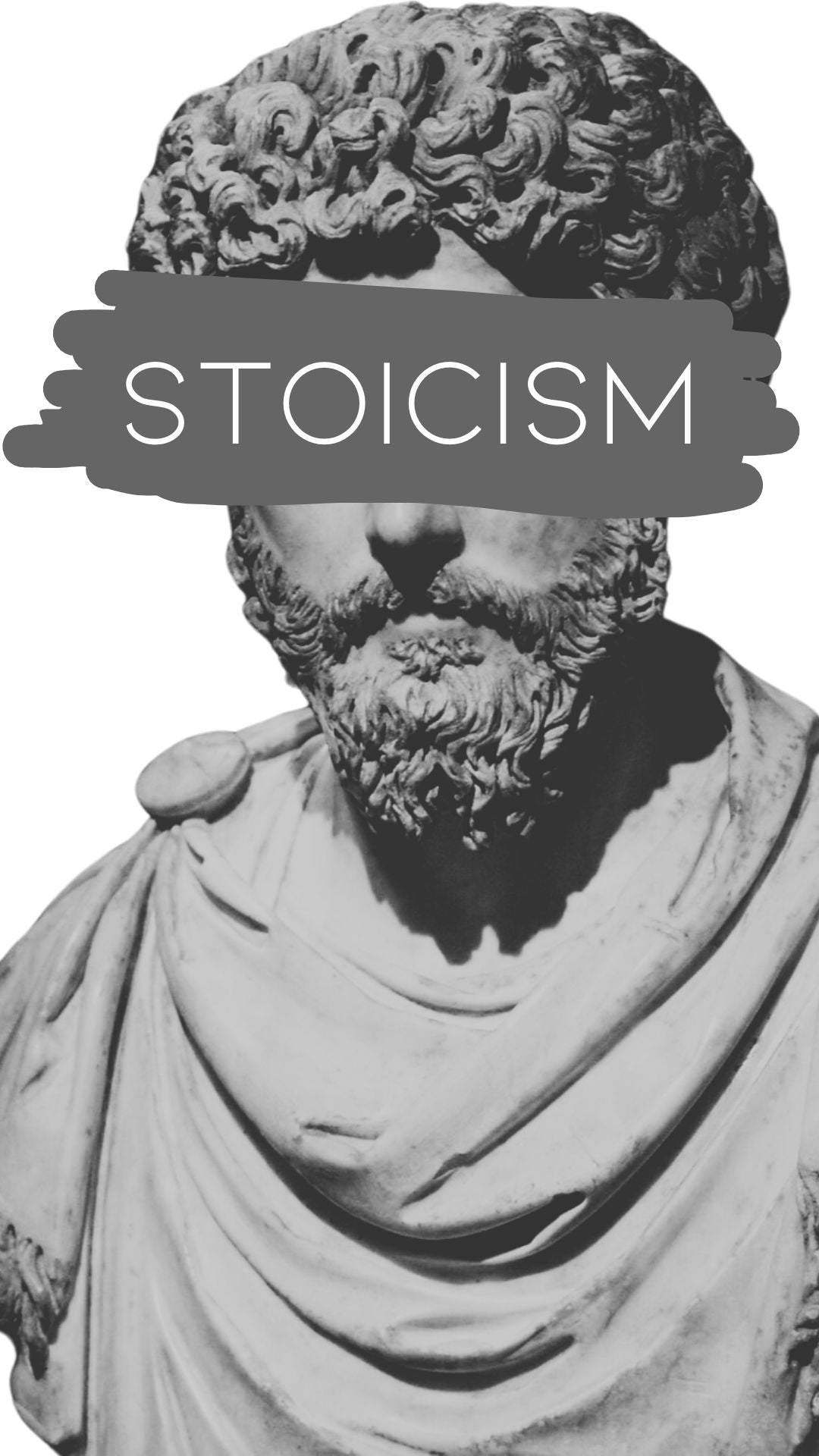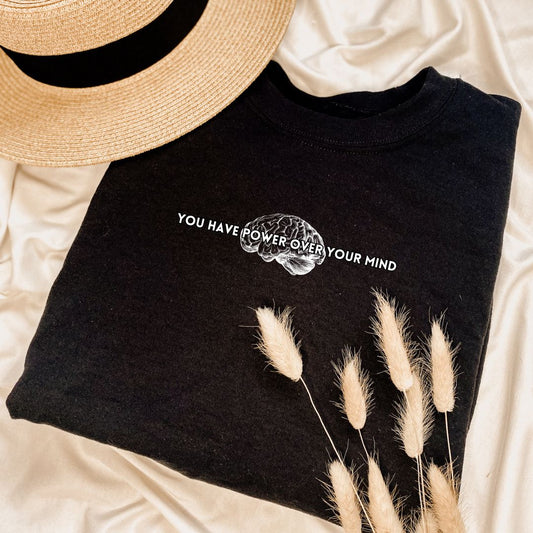-
Being Stoic Tshirt | Stoicism Tshirt
Regular price $30.00 USDRegular priceUnit price / per$36.00 USDSale price $30.00 USDSale -
Eternal Being | Esoteric Apparel | Embroidered Soft Sweatshirt
Regular price $60.00 USDRegular priceUnit price / per$72.00 USDSale price $60.00 USDSale -
Power Over Your Mind | Stoicism Sweatshirt
Regular price $60.00 USDRegular priceUnit price / per$72.00 USDSale price $60.00 USDSale -
Power Over Your Mind | Stoicism Tshirt
Regular price $30.00 USDRegular priceUnit price / per$36.00 USDSale price $30.00 USDSale -
Stoic Philosophy Research Support | Marcus Aurelius Thought Forms Studies
Regular price $34.00 USDRegular priceUnit price / per$41.00 USDSale price $34.00 USDSale -
Stoic Soul Vintage Tshirt
Regular price $34.00 USDRegular priceUnit price / per$41.00 USDSale price $34.00 USDSale
Collection: Support Stoicism Research...
Supporting Stoicism Research Through Meaningful Wear
Your contribution advances understanding of how Stoic principles develop emotional resilience and practical wisdom in contemporary life
🔬 Our Research Focus
This collection supports ongoing research into Stoic philosophy's psychological mechanisms and practical applications. Each piece embodies specific Stoic principles that modern psychology validates as effective for emotional regulation, decision-making, and meaningful living.
💎 Contribution Transparency
70% Research Funding: Directly supports Stoicism psychology studies, cognitive-behavioral research, and making ancient wisdom accessible
30% Sustainable Creation: Ethical production ensuring long-lasting, meaningful pieces
Impact: Your support has funded research reaching 85,000+ seekers monthly, investigating how ancient Stoic practices provide scientifically-backed frameworks for resilience and wisdom.
Stoicism: Ancient Wisdom, Modern Validation
What Is Practical Stoicism?
Stoicism offers precise psychological technologies for emotional mastery and practical wisdom. Far from emotional suppression, Stoic practices develop what modern psychology calls emotional regulation, cognitive flexibility, and post-traumatic growth—capacities now validated through neuroscience research.
Our research investigates how Stoic principles translate into contemporary therapeutic interventions and personal development practices.
The Science Behind Stoic Psychology
Contemporary Research Applications
Modern psychology increasingly validates Stoic insights through cognitive-behavioral therapy, acceptance-based therapies, and resilience research. Our ongoing studies document how ancient practices align with cutting-edge psychological science:
Cognitive Behavioral Validation:
- Stoic philosophy of control → Locus of control research
- Dichotomy of control → Acceptance and commitment therapy
- Preferred indifferents → Values clarification work
- Prosoche (attention) → Mindfulness and metacognition
Neuroscience Correlations:
- Stoic practices affect prefrontal cortex development
- Emotional regulation improves through philosophical exercises
- Resilience builds through controlled exposure (premeditatio malorum)
- Attention training enhances cognitive flexibility
Core Stoic Research Areas
The Four Cardinal Virtues in Modern Context
Wisdom (Sophia): Practical intelligence and sound judgment validated through decision science research
Courage (Andreia): Psychological resilience and facing difficulties, studied in trauma and post-traumatic growth research
Justice (Dikaiosyne): Social responsibility and moral reasoning, explored in ethical psychology studies
Temperance (Sophrosyne): Self-regulation and impulse control, extensively validated in behavioral psychology
Our Collection Features
- Marcus Aurelius wisdom - Meditations insights for practical daily application
- Seneca's practical philosophy - Letters translating Stoic principles to modern challenges
- Epictetus teachings - Discourses on psychological freedom and resilience
- Modern Stoic applications - Contemporary interpretations of ancient practices
- Cognitive-behavioral connections - Designs showing Stoic-therapy alignments
- Resilience research symbols - Visual representations of psychological strength principles
Join Our Research Community
When you support this collection, you become part of a global community dedicated to understanding and applying Stoic wisdom through rigorous research. Your contribution enables:
- Research into Stoicism's psychological and therapeutic applications
- Educational resources bridging ancient philosophy with modern psychology
- Digital tools making Stoic practices accessible to contemporary practitioners
- Community programs exploring practical philosophy applications
🌟 Community Impact
Together, we've achieved:
- Funded research reaching 95,000+ seekers monthly with practical Stoic wisdom
- Created educational materials for 30+ therapeutic and coaching programs
- Supported studies documenting Stoic practices' effectiveness in stress reduction
- Built digital resources making Stoic philosophy accessible to modern practitioners
Explore Related Research Areas
Discover more practical wisdom through our specialized collections:
- Platonism Research Support - Investigating Platonic ideals and consciousness
- Greek Mythology Research Support - Exploring archetypal psychology
- Esoteric Research Support - Comprehensive wisdom tradition studies
- Hermetic Research Support - Ancient wisdom and consciousness studies
Why This Matters Now: In our age of emotional volatility and decision overwhelm, Stoic wisdom provides evidence-based frameworks for psychological resilience and practical wisdom. Through this collection, we're not just wearing philosophy—we're supporting research into time-tested methods for human flourishing that modern psychology continues to validate and refine.
Blog posts
View all-
Soulmate Connections: Types, Signs, and the Psy...
Quick Answer: Soulmate connections are deep bonds that transcend ordinary attraction, characterized by immediate recognition, profound understanding, and a sense of having known the person before. The three primary types...
Soulmate Connections: Types, Signs, and the Psy...
Quick Answer: Soulmate connections are deep bonds that transcend ordinary attraction, characterized by immediate recognition, profound understanding, and a sense of having known the person before. The three primary types...
-
Soul Travel: Exploring Consciousness Beyond the...
Quick Answer: Soul travel is the practice of extending consciousness beyond the physical body to explore inner, spiritual, or non-physical dimensions of reality. Traditions worldwide describe this experience, from shamanic...
Soul Travel: Exploring Consciousness Beyond the...
Quick Answer: Soul travel is the practice of extending consciousness beyond the physical body to explore inner, spiritual, or non-physical dimensions of reality. Traditions worldwide describe this experience, from shamanic...
-
Soul Origins: Where Does the Soul Come From? Ex...
Quick Answer: The origin of the soul is one of humanity's oldest and most profound questions. Major perspectives include divine creation (the soul is created by God at conception), emanation...
Soul Origins: Where Does the Soul Come From? Ex...
Quick Answer: The origin of the soul is one of humanity's oldest and most profound questions. Major perspectives include divine creation (the soul is created by God at conception), emanation...
I dont know why this has to be so long but it does

What is Stoicism?
Stoicism is a profound philosophy of personal ethics that venerates rationality, self-mastery, and virtue as the true path to a fulfilling life. It teaches that while the external events of the world remain beyond our control, we possess the sovereign power to govern our reactions to them, thus aligning ourselves with the higher principles of wisdom and inner harmony.
What are the main principles of Stoicism?
At the core of this ancient wisdom lie essential principles: the Dichotomy of Control, which elucidates the distinction between that which we may govern and that which remains beyond our influence, and a profound emphasis on virtue as the sole true good. These teachings guide the earnest seeker toward a life aligned with higher ideals and inner harmony.
Is Stoicism about suppressing emotions?
Stoicism doesn't suggest that we suppress our emotions. Rather, it invites us to observe and understand them, recognizing that through mindful awareness and reason, we can navigate our inner experiences with greater clarity.
What is Stoicism?
Stoicism is a philosophy of personal ethics that emphasizes rationality, self-control, and virtue as the path to a fulfilling life. It teaches that we cannot control external events but can control our reactions to them.
What is Stoicism?
Stoicism is a philosophy of personal ethics that emphasizes rationality, self-control, and virtue as the path to a fulfilling life. It teaches that we cannot control external events but can control our reactions to them.
What is Stoicism?
Stoicism is a philosophy of personal ethics that emphasizes rationality, self-control, and virtue as the path to a fulfilling life. It teaches that we cannot control external events but can control our reactions to them.
What is Stoicism?
Stoicism is a philosophy of personal ethics that emphasizes rationality, self-control, and virtue as the path to a fulfilling life. It teaches that we cannot control external events but can control our reactions to them.






